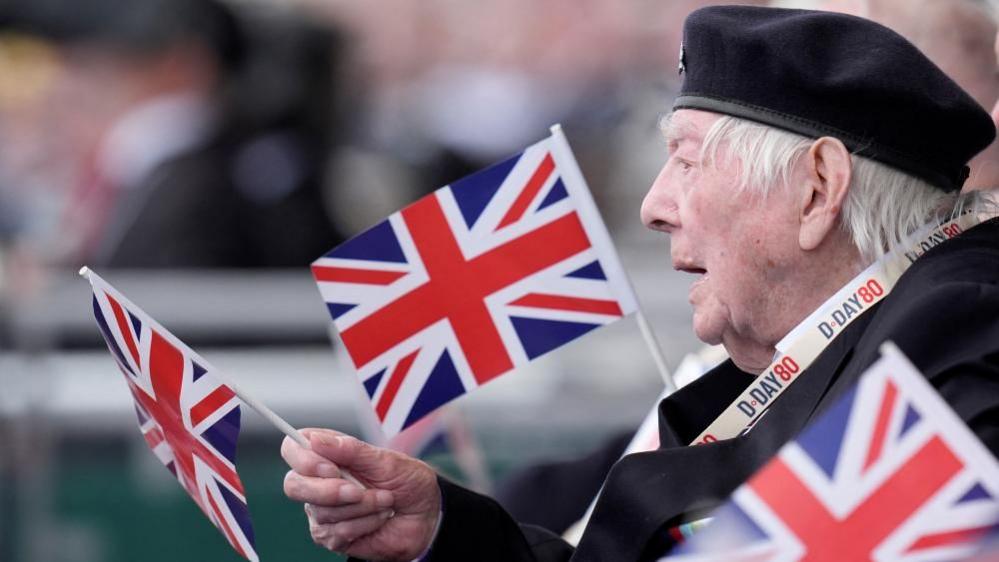D-Day veteran's 'last' return to invasion beaches
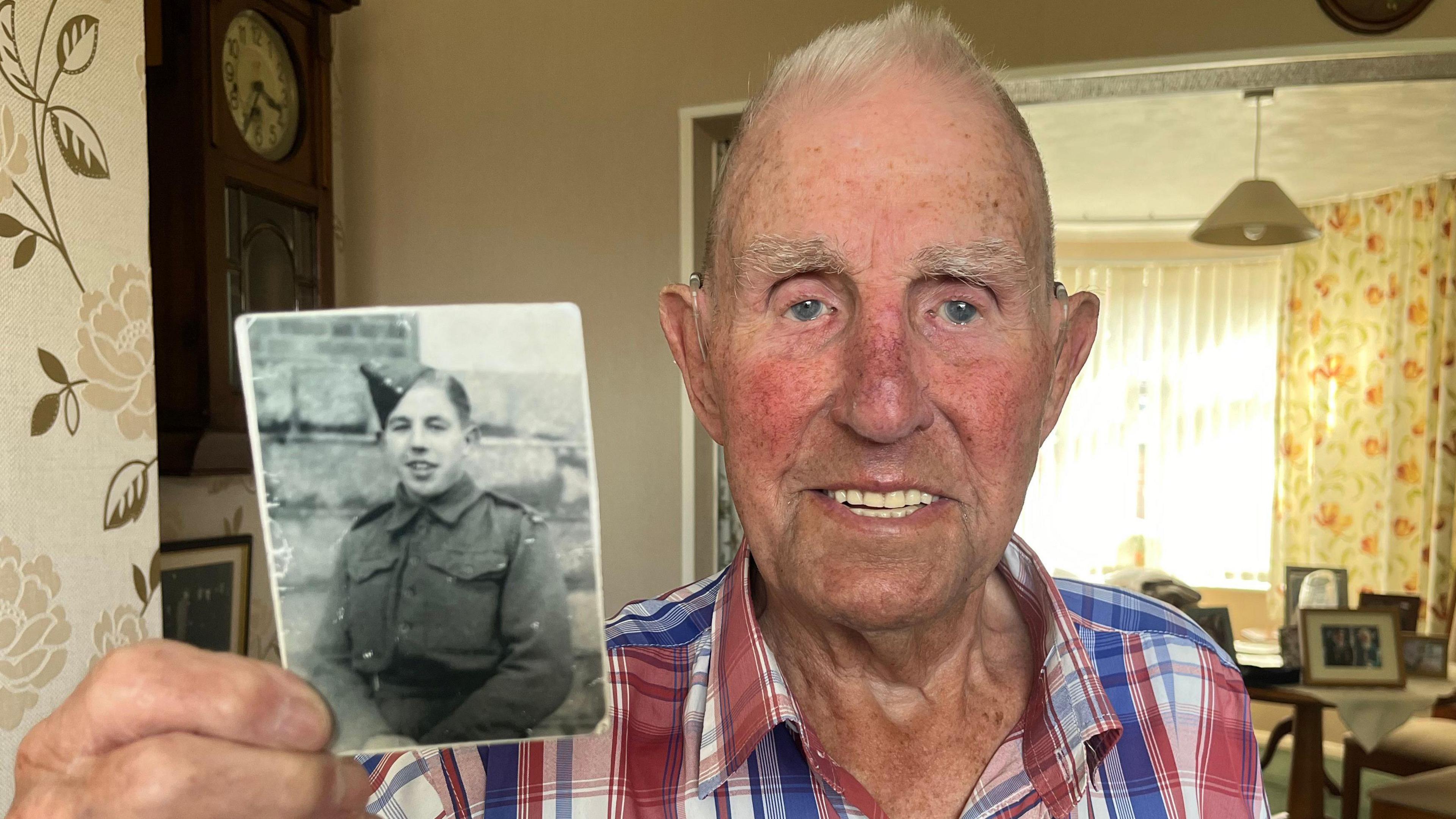
Ken Cooke was conscripted into the 7th Battalion, Green Howards (Yorkshire Regiment) in 1943
- Published
A D-Day veteran has returned to the Normandy beaches for what he has said will be the "last time", 80 years on from his role in the biggest seaborne invasion in history.
On 6 June 1944, Ken Cooke, from York, was an 18-year-old Army conscript who had gone from working in a sweet factory to taking part in the D-Day landings.
Mr Cooke, now 98, was part of the first wave of the invasion force landing on what was known as Gold Beach, and has gone back to the location many times since.
He said: "I am very proud to be one of the last ones, but also I am very, very, very lucky to be here today."
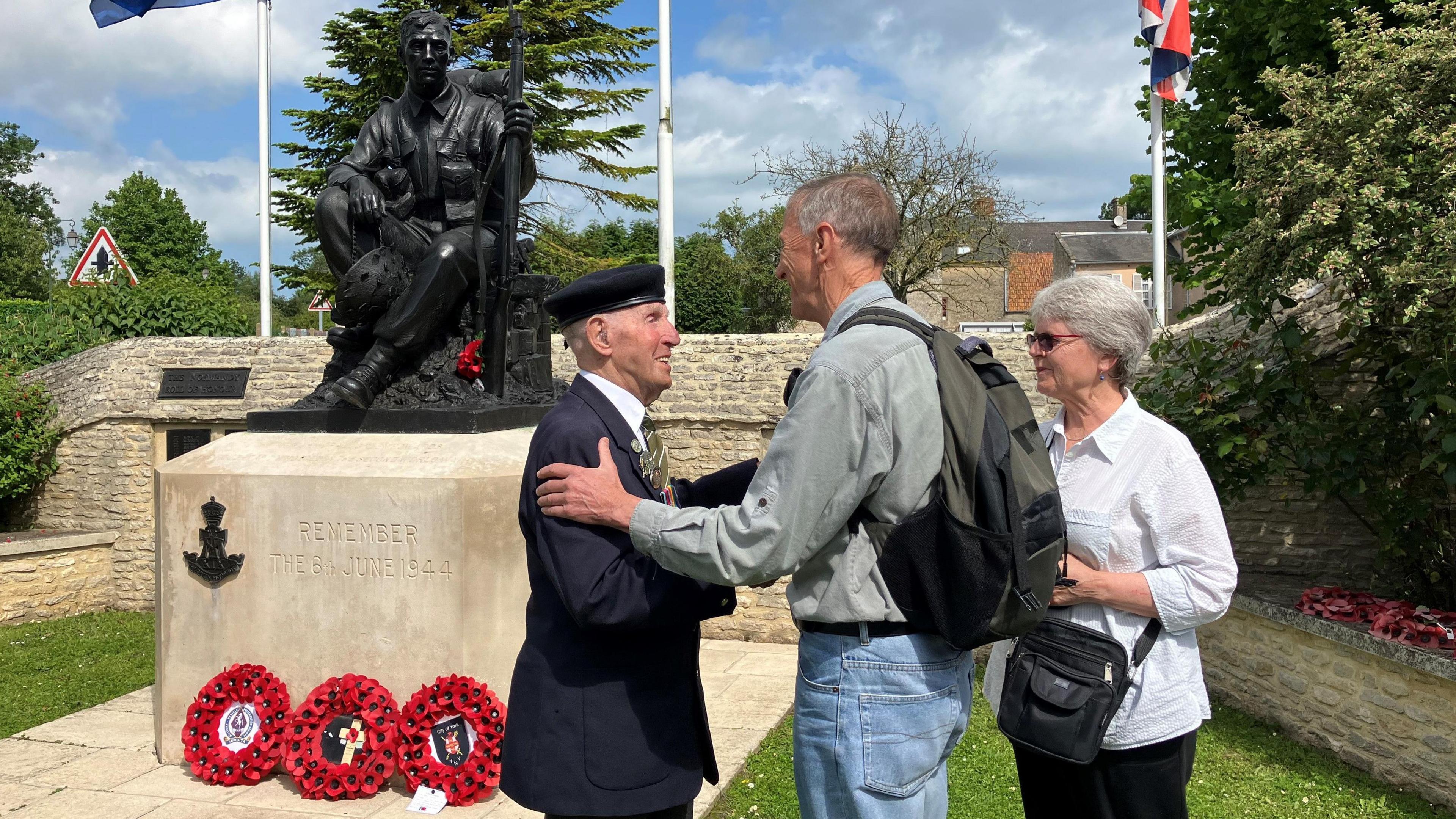
Ken Cooke said his visit to Normandy to mark the 80th anniversary of the D-Day landings would be his final trip there
Mr Cooke, who was a member of 7th Battalion, Green Howards (Yorkshire Regiment), said he still clearly remembered the build-up to the invasion.
"We were put on lorries, taken down to Southampton to the harbour. You couldn't see the harbour for the ships - the same for Portsmouth.
"The story went round that you could walk across Southampton Harbour and Portsmouth Harbour without getting your feet wet, there were that many boats and ships."
Formerly a worker at the Rowntree's sweet factory in York, Mr Cooke said the night before the invasion, he was on board a troop-carrying ship playing cards with comrades he only knew by their first names.
"At half past three in the morning, we all went up to the mess deck and had our breakfast," he said.
"It consisted of Scotch porridge with salt - not sugar, salt, terrible stuff it was, half of it went overboard - a mug of tea, a corned beef sandwich and a small tot of rum.
"That was to give us a bit of courage, I think."
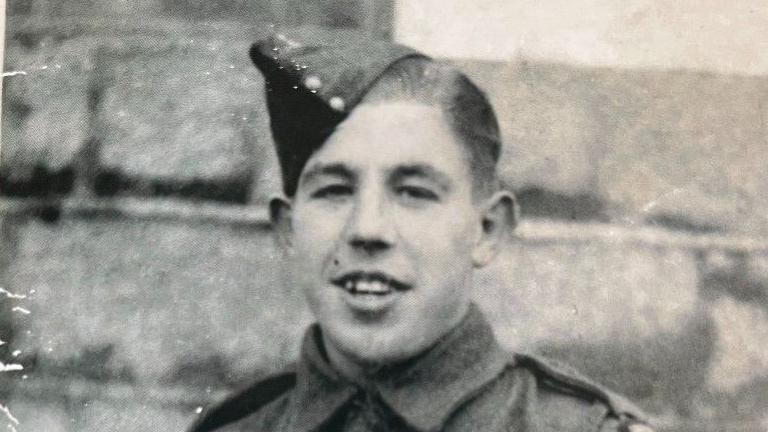
Ken Cooke worked at the Rowntree's sweet factory in York before being conscripted into the Army
German positions on the Normandy coast had already been battered from the air by the time the landing beach came into view, Mr Cooke said.
"All we could see was the beach and the dust and fires. I can't explain this, but I was leaning over the side of the landing craft watching all the fireworks, you know, rockets going, battleships firing, artillery firing from the bigger landing craft."
Mr Cooke said he was dropped into about 6in (15cm) of sea water and all he remembered was how wet his socks felt.
The troops were then told to move off the beaches and into the surrounding countryside as quickly as possible.
"The sergeant and the corporal were shouting to get off the beach as quickly as you can, if anybody falls down, gets shot off and falls down, leave them and you get off the beach. The medics will take care of those people," he said.
'Serious stuff'
Mr Cooke survived the landing and the first day in German-occupied France and said it was only the next morning that the enormity of the experience hit him.
"We had breakfast and we were looking around and asking, 'where is Tommy, where is Geordie, where is so and so?'
"Someone said, 'you remember that explosion on the beach? They were next to it and they got killed'.
"That's when I realised this was serious stuff. It sank in that those were real bullets.
"It was a shock to find out, up to then it was just adrenaline taking us forward."
Mr Cooke said he and the remainder of his battalion cleared villages of German troops and gradually moved inland until, on 4 July, he was badly wounded by a mortar bomb while on patrol and was sent home to recover.
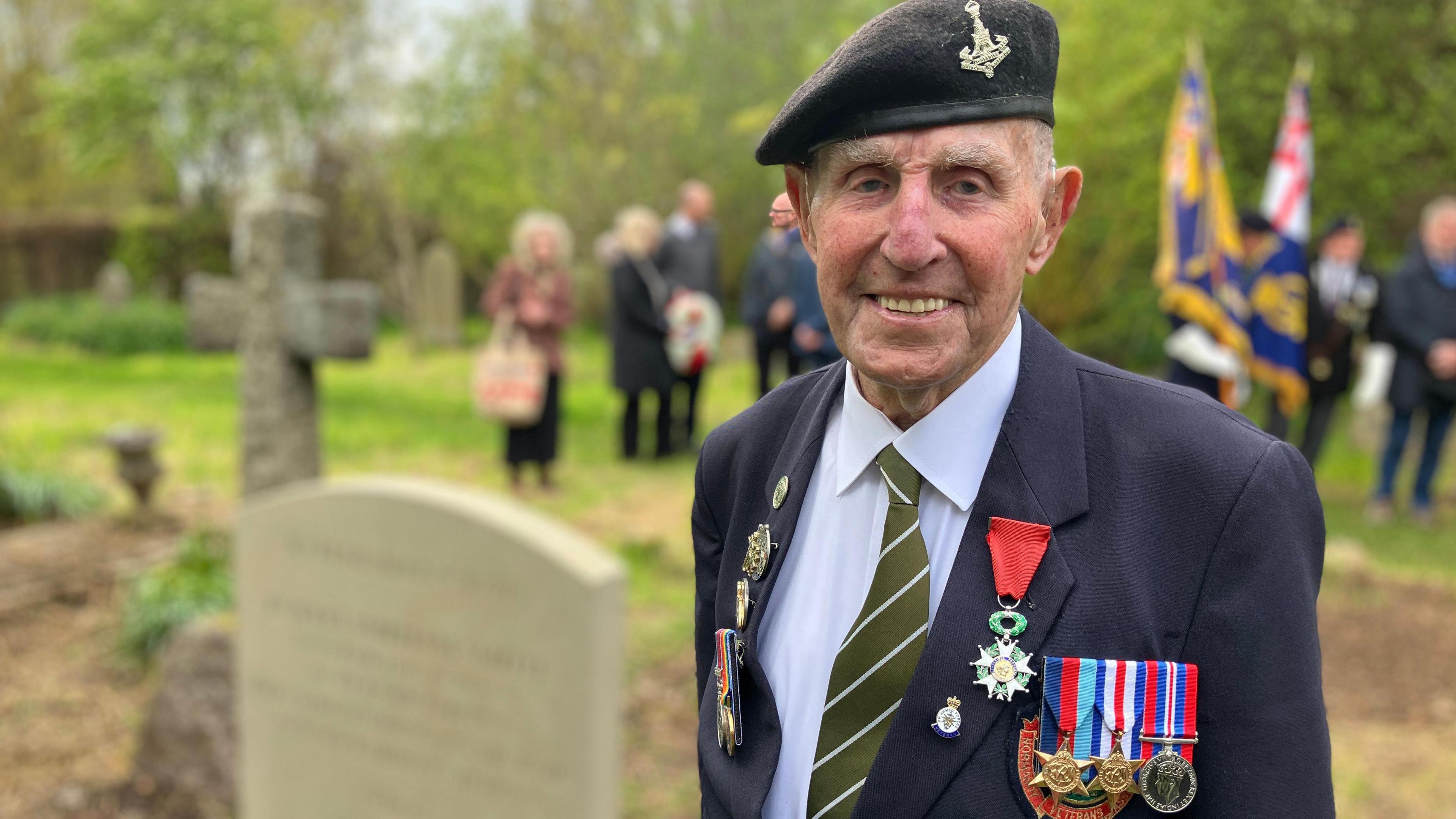
Ken Cooke said his 2024 visit to Normandy would be his last as "there are hardly any veterans left now"
In the 80 years since D-Day, Mr Cooke said he had returned to Normandy many times.
He went on to form friendships with others who had been there on the beaches that day and survived.
Now approaching 100 years old, Mr Cooke said 2024 would be the last time he made the journey to the scene of the invasion.
"It will be the last time because there are hardly any veterans left now," he said.
"I am very proud to be one of the last ones, but also I am very, very, very lucky to be here today."
On this final journey, Mr Cooke said he would carry some of the ashes of good friends and fellow Normandy veterans Sid Metcalfe and Douglas Petty, who died recently.
He said he planned to scatter their ashes in a small ceremony to remember the men and boys who never came home.
"There is a row of graves in Bayeux where there are 12 Green Howards all in a row," he said.
"I have stood there and I have cried because I always say I could have been one of those, as simple as that."
Follow BBC Yorkshire on Facebook, external, X (formerly Twitter, external) and Instagram, external. Send your story ideas to yorkslincs.news@bbc.co.uk.
- Published5 June 2024
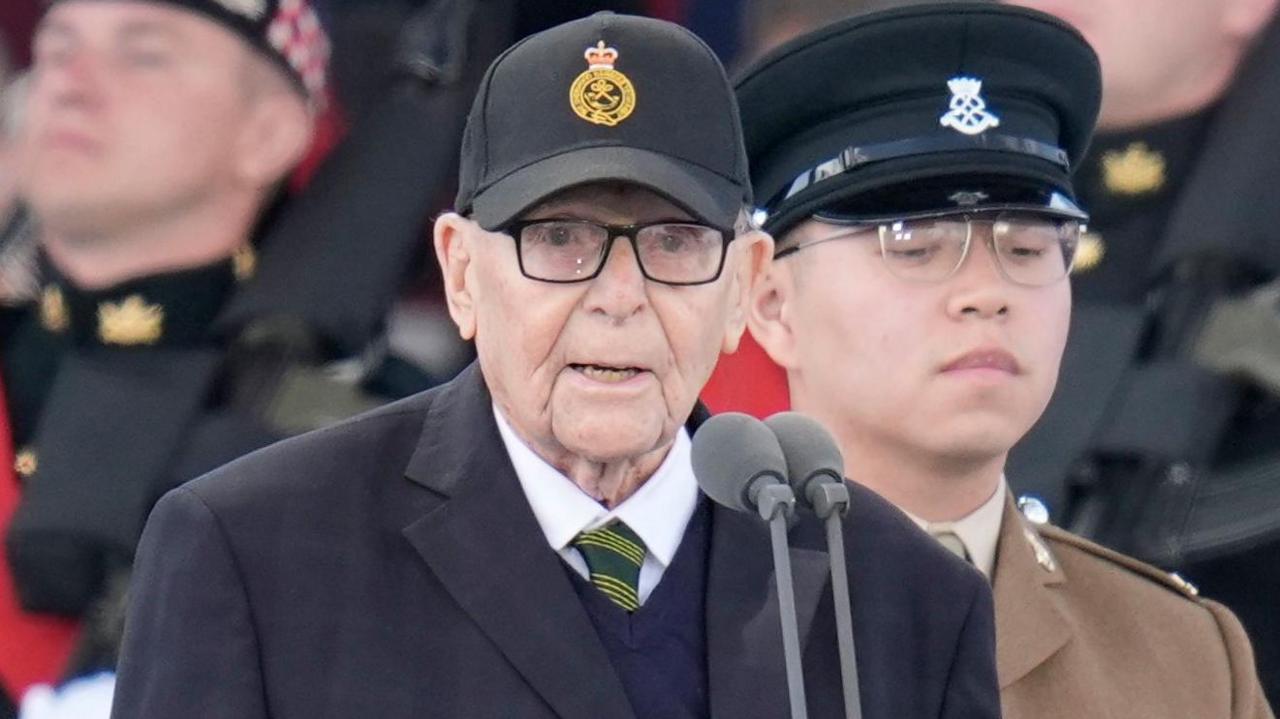
- Published6 June 2024
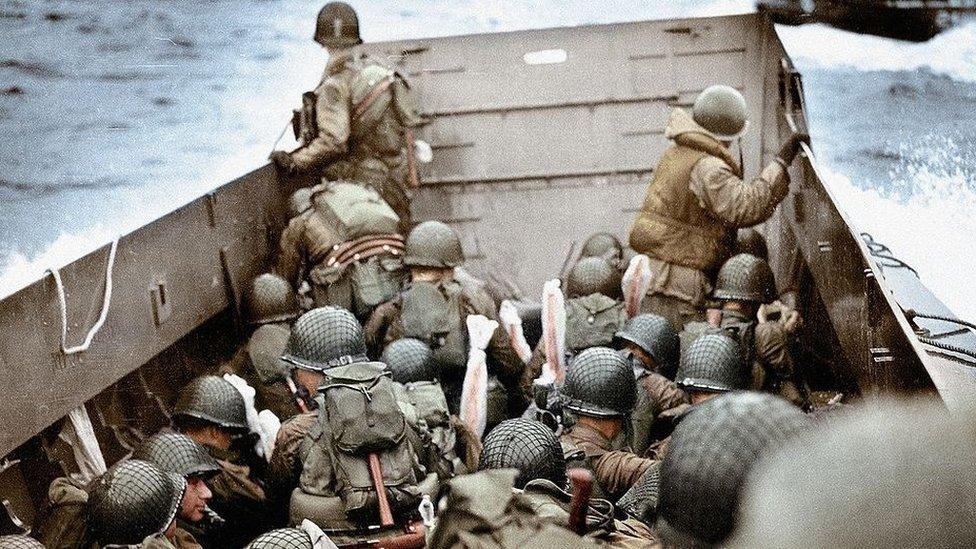
- Published6 June 2024
